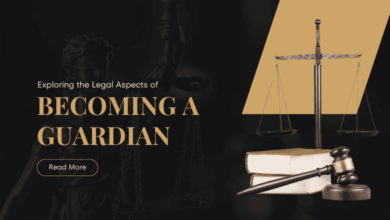The Importance of Quick Bail for Traffic Violation Offenses

Traffic violations can range from minor infractions to serious offenses, such as driving under the influence or reckless driving. While some of these violations result in fines or points on your license, others can lead to arrest and jail time. In these cases, securing bail quickly is essential to minimize disruption to your life and prevent the situation from escalating.
Why Quick Bail Matters for Traffic Violations
When you are arrested for a traffic violation, the ability to post bail quickly can significantly impact your personal, professional, and financial well-being. Here’s why:
1. Minimizing Time Spent in Jail
The longer you remain in jail, the more likely it is to negatively affect your mental health, job stability, and family relationships. Quick bail ensures that you can resume your daily responsibilities while awaiting court proceedings.
2. Preserving Employment
Being in jail, even for a short period, can jeopardize your job, especially if you miss work without prior notice. Securing bail quickly allows you to inform your employer of the situation and return to work promptly, reducing the risk of losing your income.
3. Maintaining Family Responsibilities
If you have dependents, your absence can create challenges for your family. Posting bail quickly allows you to fulfill your responsibilities as a parent, caregiver, or partner, preventing unnecessary stress on your loved ones.
4. Protecting Your Reputation
An arrest can have a lasting impact on your personal and professional reputation. Quick release through bail minimizes the chances of prolonged incarceration, reducing the visibility of the situation and its potential repercussions.
Common Traffic Violations That May Require Bail
Certain traffic violations carry more severe penalties, often requiring bail to secure release. These include:
- Driving Under the Influence (DUI): DUI offenses often result in mandatory arrests, especially if there are aggravating factors such as high blood alcohol content (BAC) or a prior DUI record.
- Reckless Driving: Endangering the safety of others on the road can lead to arrest and the imposition of bail.
- Driving Without a License or Insurance: These violations may result in detention, especially for repeat offenders.
- Hit-and-Run Accidents: Fleeing the scene of an accident is considered a serious offense and often requires bail for release.
- Speeding in Restricted Zones: Excessive speeding in school or construction zones can lead to significant penalties, including jail time.
Factors That Influence Bail Amounts for Traffic Violations
The amount of bail set for traffic violations can vary based on several factors:
1. Severity of the Offense
Serious offenses such as DUI or hit-and-run accidents typically result in higher bail amounts compared to minor infractions like speeding.
2. Defendant’s Criminal History
A defendant with prior traffic violations or criminal charges may face higher bail amounts due to perceived risk.
3. Risk of Flight
If the court believes the defendant is likely to flee and not appear for court hearings, the bail amount may be increased to ensure compliance.
4. Injuries or Damages Caused
If the traffic violation resulted in injury to others or significant property damage, the bail amount is likely to reflect the severity of the consequences.
5. Local Laws and Bail Schedules
Each jurisdiction has its bail schedule that outlines recommended amounts for specific offenses. These schedules influence the bail set for traffic violations in your area.
Steps to Secure Quick Bail for Traffic Violations
When you or a loved one is arrested for a traffic violation, taking the following steps can help secure a quick release:
1. Understand the Charges
Knowing the exact charges against you is critical. This information will guide your next steps and help you determine the amount of bail required.
2. Contact a Bail Bonds Agent
If you cannot afford the full bail amount, a bail bonds agent can post bail on your behalf for a fee, usually around 10-15% of the total bail amount.
3. Gather Necessary Documents
Have identification, proof of income, and any other required documentation ready to expedite the bail process.
4. Provide Collateral if Needed
If the bail amount is high, you may need to provide collateral, such as property or valuable assets, to secure the bond.
5. Ensure Compliance with Bail Conditions
Once released, adhere strictly to the conditions set by the court, such as attending all scheduled hearings and avoiding further legal trouble.
The Risks of Delaying Bail
Delaying bail for traffic violations can lead to several negative consequences:
- Prolonged Detention: Remaining in jail can disrupt your personal and professional life, leading to job loss, missed opportunities, and strained relationships.
- Increased Legal Costs: The longer you stay in jail, the more you may incur additional legal fees, such as attorney costs and lost income.
- Worsened Mental Health: Extended time in jail can lead to anxiety, depression, and other mental health challenges, especially for individuals unaccustomed to incarceration.
- Stricter Court Penalties: Courts may view prolonged detention as a sign of non-compliance, potentially resulting in harsher penalties during sentencing.
Benefits of Quick Bail for Traffic Violations
1. Freedom to Prepare for Your Case
Being released on bail allows you to work with an attorney, gather evidence, and build a strong defense for your case without the limitations of incarceration.
2. Maintaining Routine
Quick release ensures minimal disruption to your daily life, allowing you to maintain your job, care for your family, and meet other obligations.
3. Reduced Financial Burden
While bail may seem costly, the long-term financial impact of staying in jail, such as lost wages and legal fees, is often far greater.
4. Access to Resources
Securing bail gives you access to resources like counseling, legal aid, and support networks that can help you navigate the legal process effectively.
How to Avoid Traffic Violations Leading to Arrest
While securing bail quickly is essential, avoiding situations that result in arrest is equally important. Here are some tips:
- Follow Traffic Laws: Obey speed limits, use turn signals, and adhere to road signs to minimize the risk of violations.
- Avoid Driving Under the Influence: Use a designated driver or ride-share service if you’ve consumed alcohol or drugs.
- Keep Your Documents Updated: Ensure your driver’s license, insurance, and vehicle registration are valid and up to date.
- Resolve Minor Violations Promptly: Pay fines or contest tickets in court to prevent them from escalating into warrants.
Quick bail for traffic violations is essential for minimizing the impact of an arrest on your life. From preserving your job to maintaining your family responsibilities, timely release ensures that you can continue with your daily routine while addressing your legal obligations. By understanding the bail process and seeking assistance when needed, you can navigate this challenging situation with confidence and ease.
For more interesting articles and resources, check out WordPlop.






